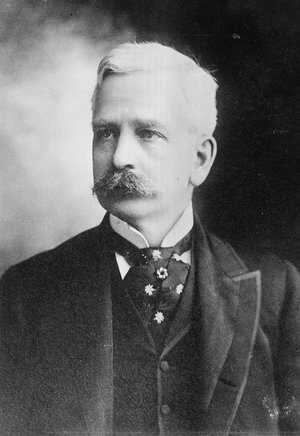Marshall Field: Revolutionizing Retail with the Chicago Department Store

Marshall Field, a name synonymous with retail innovation, forever changed the shopping experience with his Chicago department store. Born in 1834 in Conway, Massachusetts, Field began his career in retail at a young age. His journey from a small-town boy to the founder of one of the most iconic department stores in the United States is a testament to his vision and business acumen.
When Marshall Field moved to Chicago in 1856, he joined Cooley, Wadsworth & Company, which later became known as Field, Palmer & Leiter. By 1881, after several changes in partnerships, the store was rebranded as Marshall Field & Company. This store wasn't just another retailer; it was a groundbreaking enterprise that introduced concepts still prevalent in modern retail.
Field's approach to customer service and merchandising was revolutionary. He believed in providing an unparalleled shopping experience, which included high-quality goods, elegant store design, and exceptional customer service. His famous motto, "Give the lady what she wants," highlighted his commitment to customer satisfaction and set new standards for the industry. Today, we explore how Marshall Field transformed retail and left an indelible mark on the industry.
Early Life and Career
Marshall Field's early life was marked by a strong work ethic and a keen interest in commerce. At the age of 17, he started working at a dry goods store in Pittsfield, Massachusetts. This early experience laid the foundation for his understanding of retail and customer service.
In 1856, seeking greater opportunities, Field moved to Chicago, which was rapidly growing as a commercial hub. He joined Cooley, Wadsworth & Company as an entry-level clerk. His dedication and talent quickly caught the attention of his employers, leading to rapid promotions within the company.
Field's partnership with Levi Leiter in 1865 marked the beginning of a significant transformation for the company. The store's focus shifted towards luxury goods and exceptional customer service, setting it apart from its competitors.
Innovations in Retail
Marshall Field introduced several innovative practices that revolutionized retail. One of his most notable contributions was the concept of the department store itself—a single location offering a wide range of products under one roof. This convenience was a major draw for customers who previously had to visit multiple specialty shops.
Field also pioneered the use of attractive window displays to entice passersby. These displays were meticulously designed to showcase merchandise creatively and attractively. This practice not only drew customers into the store but also set trends in visual merchandising that are still followed today.
Another groundbreaking innovation was Field's introduction of fixed prices on merchandise. At a time when haggling was common practice, fixed pricing simplified transactions and built trust with customers who appreciated knowing exactly what they would pay.
The Rise of Marshall Field & Company
Under Field's leadership, Marshall Field & Company grew rapidly. The flagship store on State Street in Chicago became a landmark known for its grand architecture and luxurious interiors. The building itself was an attraction, drawing tourists and locals alike.
The store's reputation for high-quality goods and exceptional service attracted affluent customers from across the country. Field's emphasis on customer satisfaction fostered loyalty and repeat business, further cementing the store's success.
Field's impact extended beyond retail innovations; he was also a philanthropist who contributed significantly to Chicago's cultural and educational institutions. His donations helped establish the Field Museum of Natural History and supported numerous other charitable endeavors.
Legacy and Influence
Marshall Field passed away in 1906, but his legacy lived on through the continued success of Marshall Field & Company. The principles he established—quality merchandise, exceptional service, and innovative marketing—became standard practices in retail.
The influence of Marshall Field is evident in modern retail giants like Macy's and Nordstrom, which have adopted similar approaches to customer service and merchandising. Even online retailers like Amazon emphasize customer satisfaction and convenience—principles that trace back to Field's innovations over a century ago.
Marshall Field's contributions to retail were transformative. His emphasis on customer satisfaction and innovative merchandising practices set new standards that continue to influence the industry today. From pioneering fixed prices to creating captivating window displays, Field's vision reshaped how people shop.
The legacy of Marshall Field serves as an inspiration for modern retailers striving to provide exceptional experiences for their customers. His story is a reminder that visionary thinking and dedication can leave a lasting impact on an industry and society as a whole.